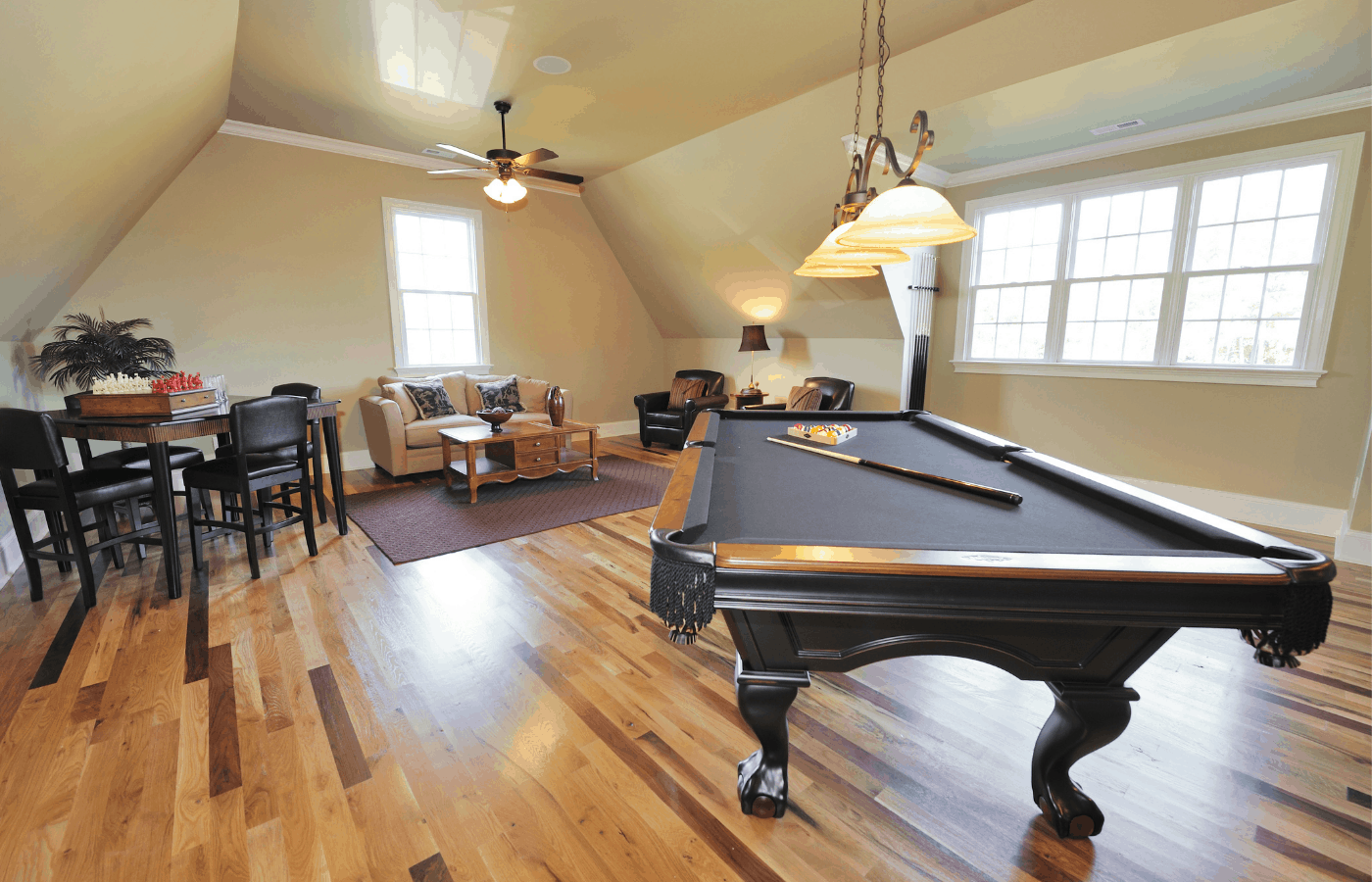Selling your home is a big, stressful project. There are many factors that can affect your home’s value, from the neighborhood it’s in, to the national housing market. But how do personal belongings that you want to leave in the home affect its final value?
There are countless things that can add or subtract value from your home, but personal items are not something that you should bank on adding value. While items like billiards tables, entertainment centers and the like can certainly make your home more appealing, it doesn’t outright add value to your home.
Now, before you sigh and head off dejectedly to pack up your fancy pool table, there are some exceptions to this. Are pool tables highly-sought in your market? Then yes, it could very well increase the number of offers you receive – but they will likely alter how potential buyers go about getting financing.
Why Personal Items Like a Pool Table Are Difficult to Valuate
Hop into the shoes of a buyer for a moment. When you’re purchasing a home, you’re looking at what the space can become for you. Many sellers don’t leave their couch and gaming setup in the family room for the same reason – what if the potential buyer doesn’t like video games? The gaming setup might be awesome for you, but it becomes clutter if the buyer isn’t interested.
In the same vein, while you may have an entertainment room in which you host guests, that might not be what the new homeowner wants the space to be. So, for you, that expensive pool table is incredibly important in that room due to how often you use it. But a pool table doesn’t do anything for the person who really, really wants a book nook.
An elegant looking pool table like this one can take your game room to the next level and provide a better form of entertainment than without one. Many people also use a pool table as a piece of furniture or decoration.
How Do Personal Items Affect Lending?
Billiards tables aren’t just hard to nail down on personal value. When applying for a mortgage, they affect the valuation of the property as a whole. As a rule, loans for homeowners will be evaluated on the value of the property as a whole – not for their personal belongings.
While you can find a more detailed explanation from a lending professional here, let’s break it down for those who (like myself) aren’t a math-loving professional and get scared by big numbers.
The Breakdown
Say your home is worth X, a potential buyer wants to place a down payment of Y, and the loan they would get to cover the remaining ~80% of costs (mortgage) is Z.
The home is given the value of X based on the “bare bones” of the home – location, property size, and quality-of-life improvements like a swimming pool or solar panels.
When getting approved for a mortgage, the lender provides Z based on the same guidelines, and the buyer covers the rest with Y.
Even if you include an objectively valuable item (like a billiards table or cinema setup), the lender isn’t trying to help you get a sweet entertainment room – they’re helping you buy a house.
This can mean lenders might value the property at slightly less to make up for the extraneous personal items included in the offer. This could leave the buyer that slight dollar amount short for the total price of the home, which is a big problem if they’re working on a tight budget.
Are Pool Tables a Good Investment?
Just because it’s not likely to add value to your home for buyers doesn’t make a billiards table a “bad” investment. It just means you need to weigh its value to you, rather than seeing it as an investment in your home’s value, like a new roof or remodeled basement.
If you love pool and enjoy the ability to entertain friends with your own personal bar setup, then go for it! Just be aware that its value depreciates with use, just like many other hobbyist items.
Sell Your Pool Table to Get the Value Out of It
Rejoice, for all hope is not lost! Just because your pool table doesn’t add value to your home, it doesn’t mean you can’t get value out of it. Offering to sell it separately to a potential home buyer allows you to get what you feel the table is worth without risking the financing.
You can also take it with you, but that can get expensive.
Selling a pool table is often a depressing thing. Your baby, the table with which you’ve shared countless long nights and tense competitions, is about to leave you for a stranger. And worst of all, the stranger doesn’t have those memories, so they just see an old table!
This means selling a used billiards table often results in getting much less back than you spent on it. Rather than writing it into the contract for the sale of the home, offer to sell it separately – it’ll make financing easier and get you the money you deserve. Much better than placing an ad on Craigslist!
Final Thoughts
Ultimately, a pool table doesn’t outright add value to your home. While there are many factors that weigh into this fact, the most important one is that you’re not selling your Xbox, favorite bar glasses, or heirloom doll collection – you’re selling your house and the property it’s on.
While this doesn’t mean that a billiards table can’t have value for you or potential buyers, it’s just too difficult to appraise personal belongings when it comes to lenders. You’ll be better off selling it separately or just bringing it with you, as long as you’re willing to pay to bring it along (and this can definitely get pretty pricey due to size and weight!)
When looking to improve the value of your home, you’re going to have to spend more money than the cost of a pool table. But that’s okay – your house is an investment, and you will see returns on the costs you invest to improve it.


